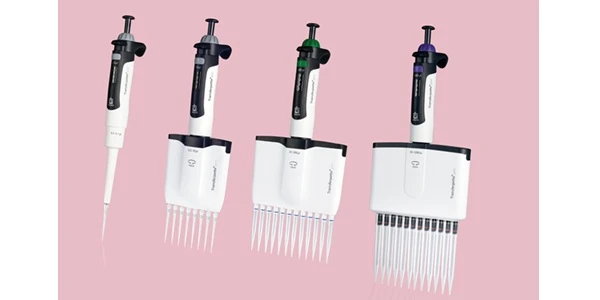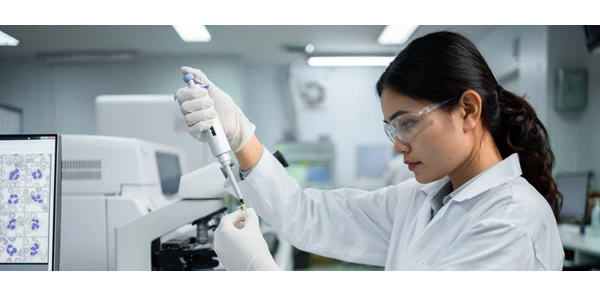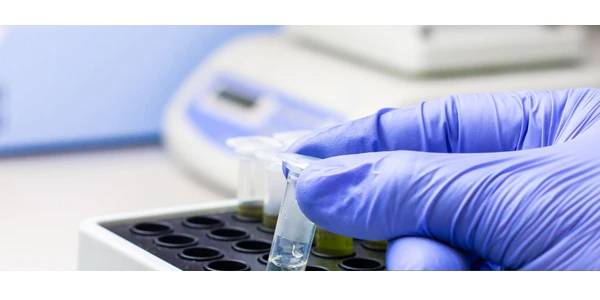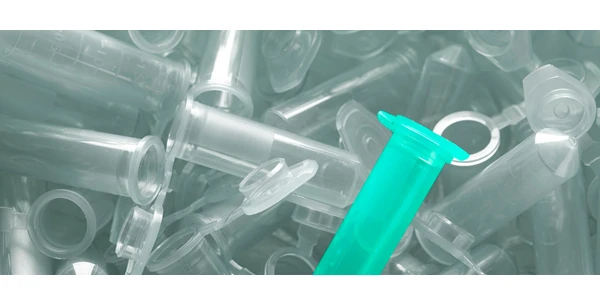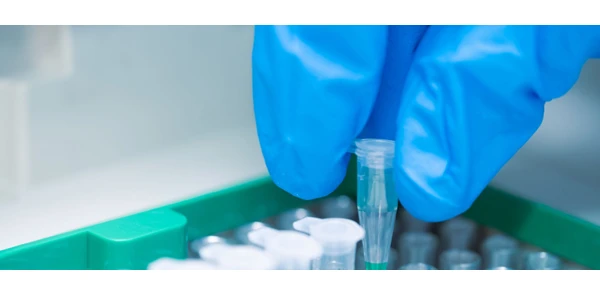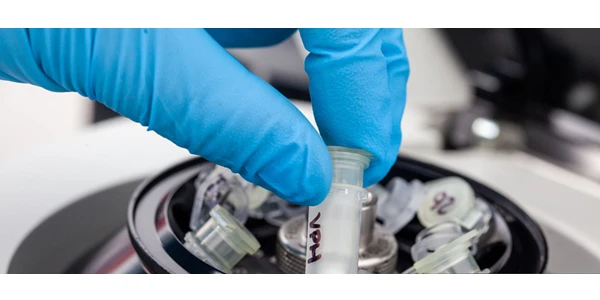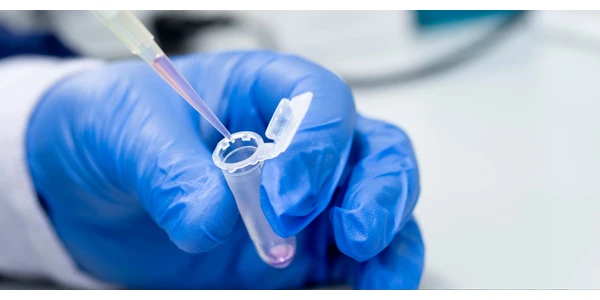LECO Instrument Solutions for Cannabis Moisture Analysis
Moisture Analysis in Cannabis and Hemp is an Area of Ongoing Method Development
Moisture content in cannabis and hemp is a critical parameter that requires reliable measurement and control. The persistence of excess moisture in samples can lead to the emergence of microbes. This can cause potential threats to consumer health and crop quality. Analytical testing for potency and contaminants requires moisture content measurements to ensure specifications for dry weight analysis are achieved. Moreover, moisture content can have major impacts on stability, shelf life, and quality control of cannabis in general. Due to the significance of moisture on cannabis quality and safety, an increasing number of states are enacting requirements for testing.
It is clear that accurate and robust moisture determination in cannabis and hemp is needed. Despite this importance, traditional techniques suffer performance issues impacting high-quality, routine moisture determination.
Moisture balances are traditional devices for measuring total water content in cannabis. Despite use of temperature-controlled ovens and analytical balances, the technique can produce variations in results stemming from sample preparation and handling inconsistencies. The loss-on-drying (LOD) technique, which measures the difference in weight before and after oven drying as a readout for water content, can be laborious and prone to inaccuracies. Furthermore, oven drying and the potential for over drying can negatively affect volatile organic compounds (VOCs), resulting in loss of certain cannabinoids, terpenes, and other valuable cannabis components.
With these considerations in mind, the team at LECO Corporation initiated a study focused on the “Determination of Moisture/Loss on Drying in Cannabis by Various Analytical Techniques”. The results shed light on the use of new automated instrument solutions for superior accuracy, precision, and throughput across a range of cannabis sample types.
Study Background
Moisture determination in cannabis is typically quantified by loss-on-drying (LOD) according to United States Pharmacopeia (USP) Monograph 731 in conjunction with Monograph 921. As stated, the standard drying temperature for botanical samples is 105°C. Other sources such as the Plant Analysis Handbook III1 indicate that 105°C may result in thermal decomposition of cannabis constituents, thereby producing artificially elevated moisture content readouts. Furthermore, the standard 105°C temperature may lead to loss of VOCs in the sample, such as cannabinoids and terpenes, further confounding accurate moisture calculations.
In this study, multiple techniques, including direct moisture determination in combination with direct carbon determination through infrared detection of H2O and CO2, respectively, were explored to determine the optimal temperature and time for gravimetric moisture/LOD analysis in cannabis.
Methods
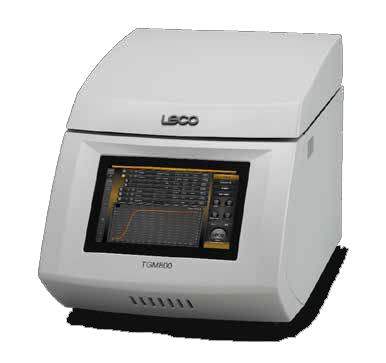
Two instrument platforms were used in the study:
The LECO TGM800 is a thermogravimetric analyzer designed to indirectly determine moisture content of materials using a mass loss-on-drying (LOD) technique. Mass loss of the sample is measured as a function of the oven temperature by controlling the atmosphere and ventilation rate. The instrument consists of a computer, and integrated four-place balance, and a multiple sample oven that allows up to 16 samples to be analyzed simultaneously with a maximum temperature of 175°C.
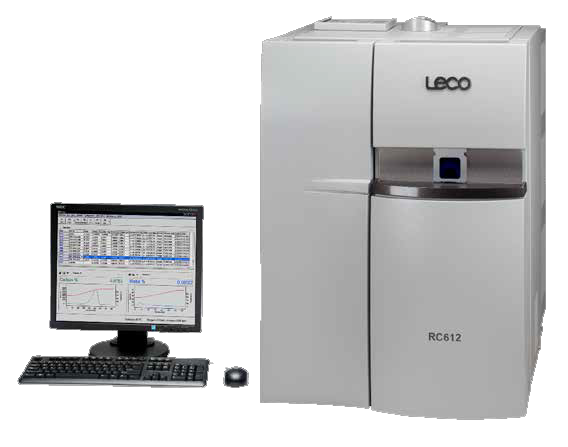
The LECO RC612 is a resistance furnace multiphase carbon and moisture determinator which quantifies the carbon and water present in various organic samples. Utilizing the LECO RC612, water can be determined directly and simultaneously with carbon, allowing for the comparison of moisture and evolved VOCs. The instrument is able to perform analysis at multiple temperatures, starting at a lower temperature and ramping to a higher temperature. This allows for the determination of the proper temperature to optimize moisture determination while minimizing VOC evolution. This information can then be applied to the LECO TGM800 instrument, for further analysis.
Results
Moisture Analysis Temperature Testing using the LECO RC612
Two temperatures were selected for the determinations of moisture, based upon information taken from the Plant Analysis Handbook III and USP Monographs 731 and 921. The 80°C temperature was taken as the benchmark below which water is known to be insufficiently liberated from plant tissue. This temperature was compared to the existing method of 105°C with direct IR detection of carbon (as CO2) and water. Results are shown in Figure 1.
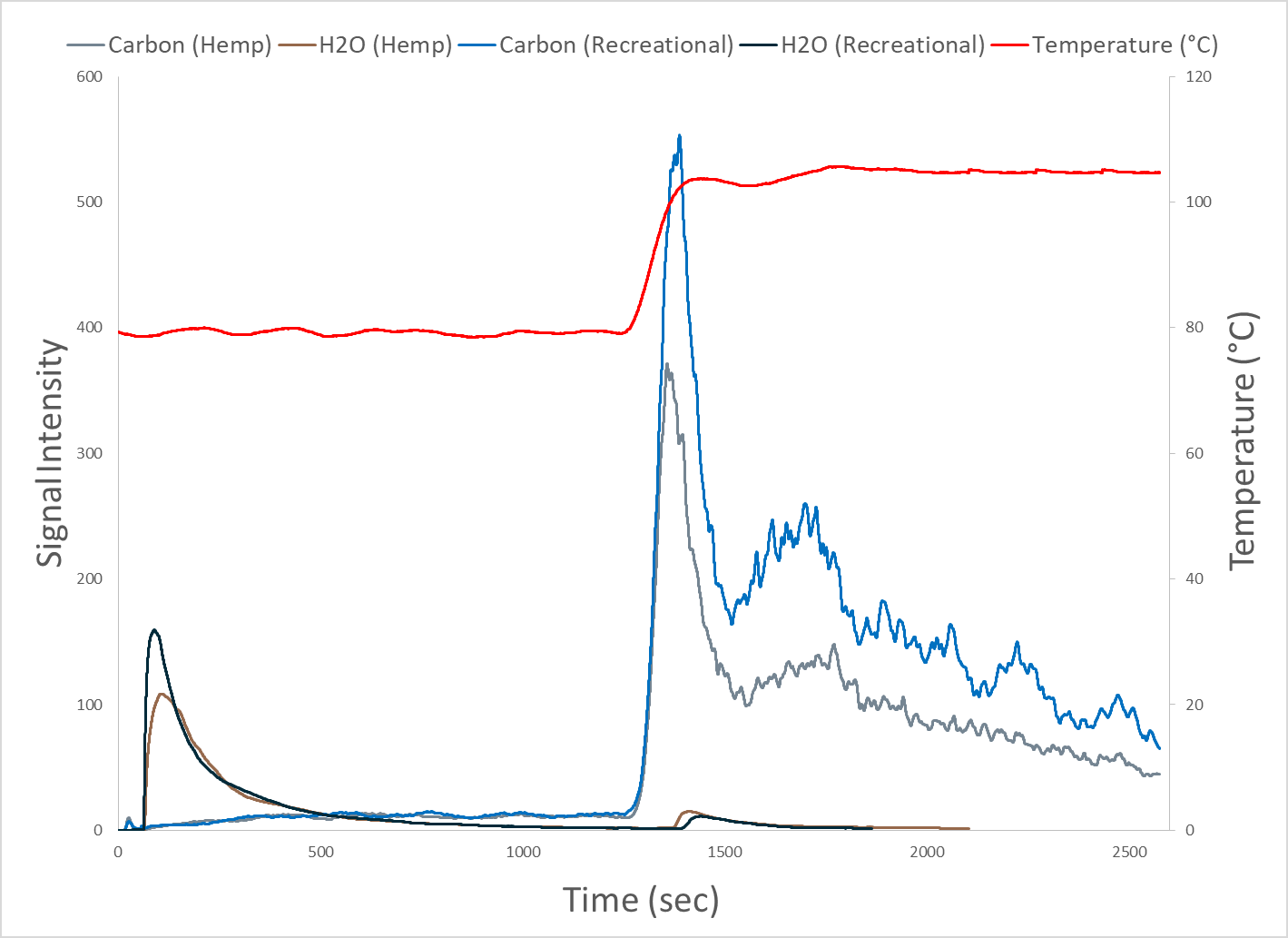
The data presented in Figure 1 illustrates that the evolution of carbon attributed to VOCs at 80°C is minimal compared to the carbon at 105°C for both recreational and hemp cannabis. The small water peak at 105°C is attributable to hydrogen in the VOCs combusting to form water, as the water peak coincides with the carbon peak. The results indicate that the determination of moisture at 80°C represents a closer approximation to the true moisture content of cannabis.
Moisture Analysis in Recreational Cannabis, Cured Hemp Cannabis, and Uncured Hemp Cannabis using the LECO TGM800
Utilizing the information from the RC612, a method was created for the analysis of cannabis plant tissue for the determination of moisture at 80°C using the TGM800. Several sample types were selected for analysis – Recreational Cannabis, Cured Hemp Cannabis, Uncured Hemp Cannabis.
The following tables display the results from the LECO TGM800 analysis determining moisture at 80°C and 105°C to the end-point of constant mass.
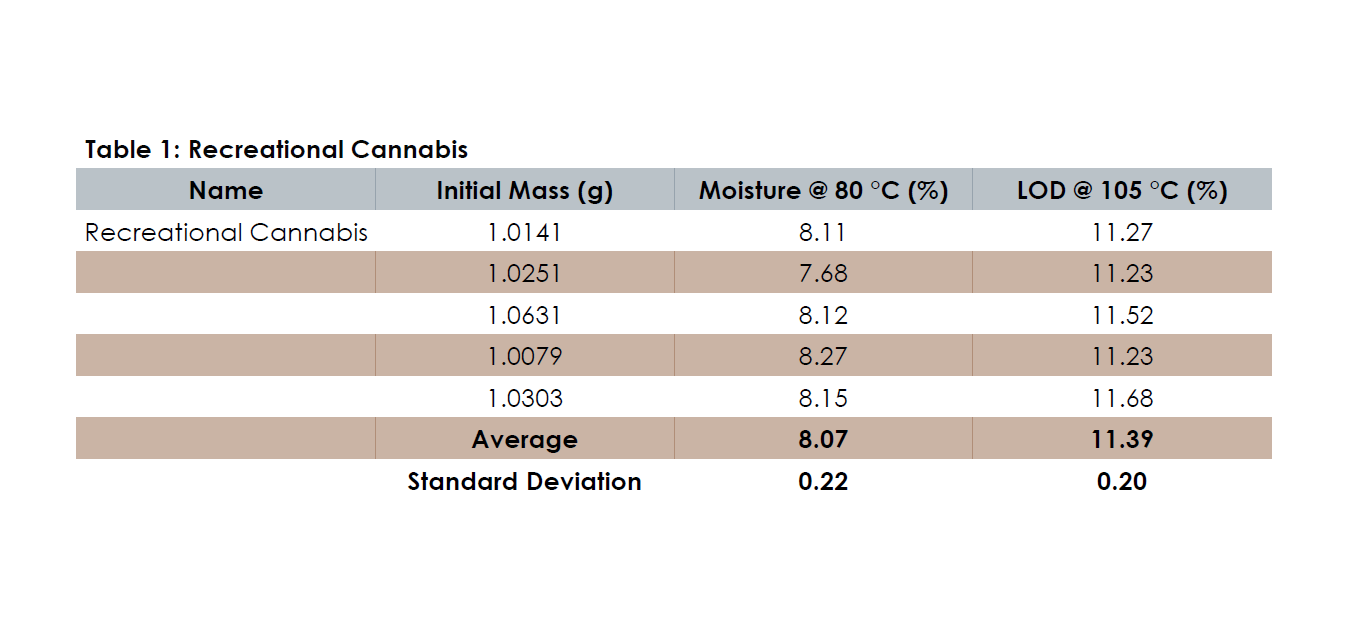
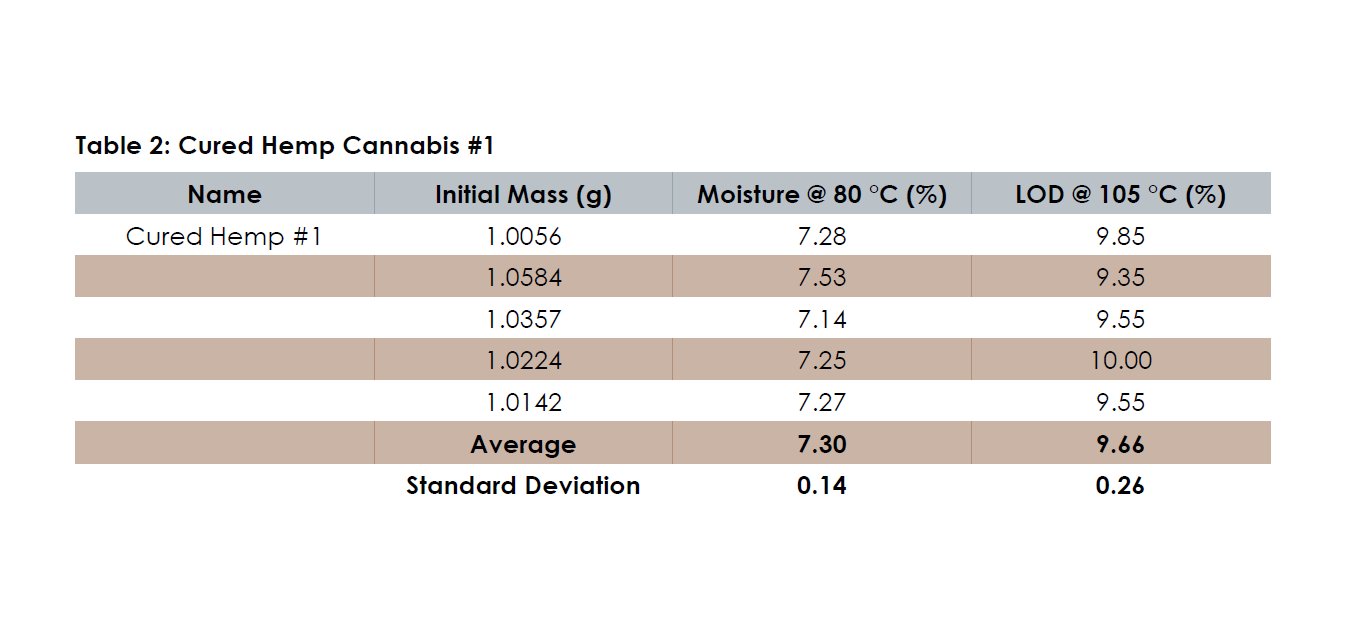
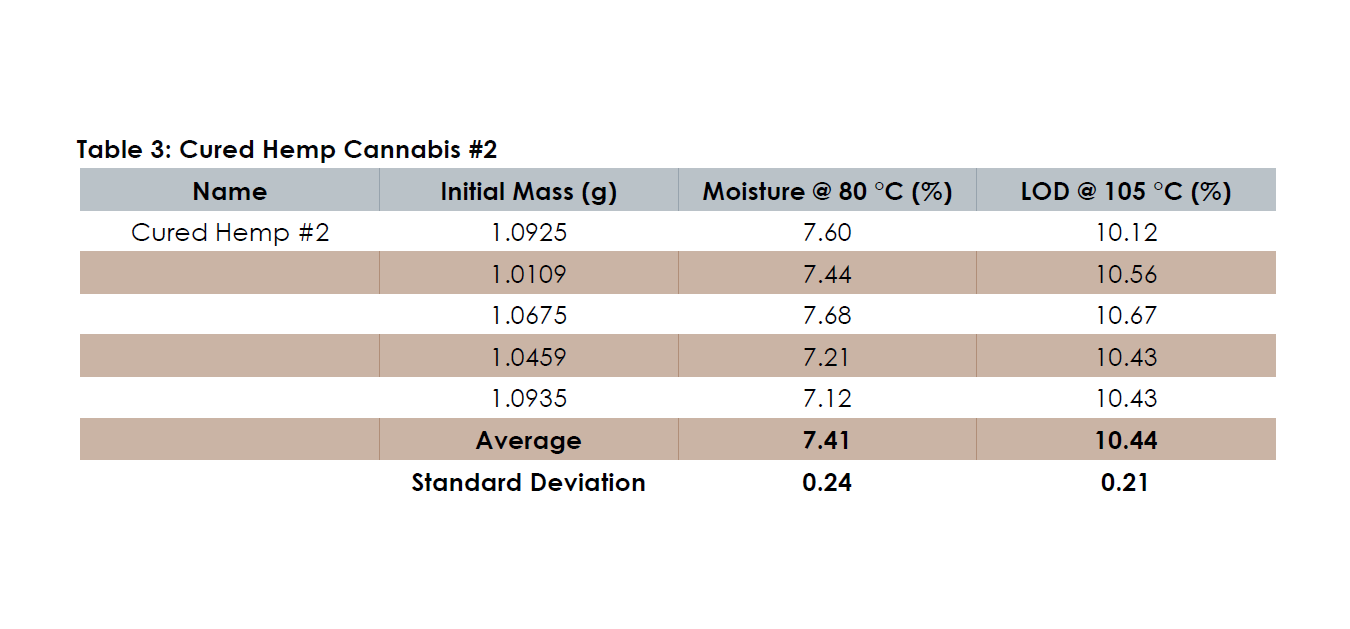
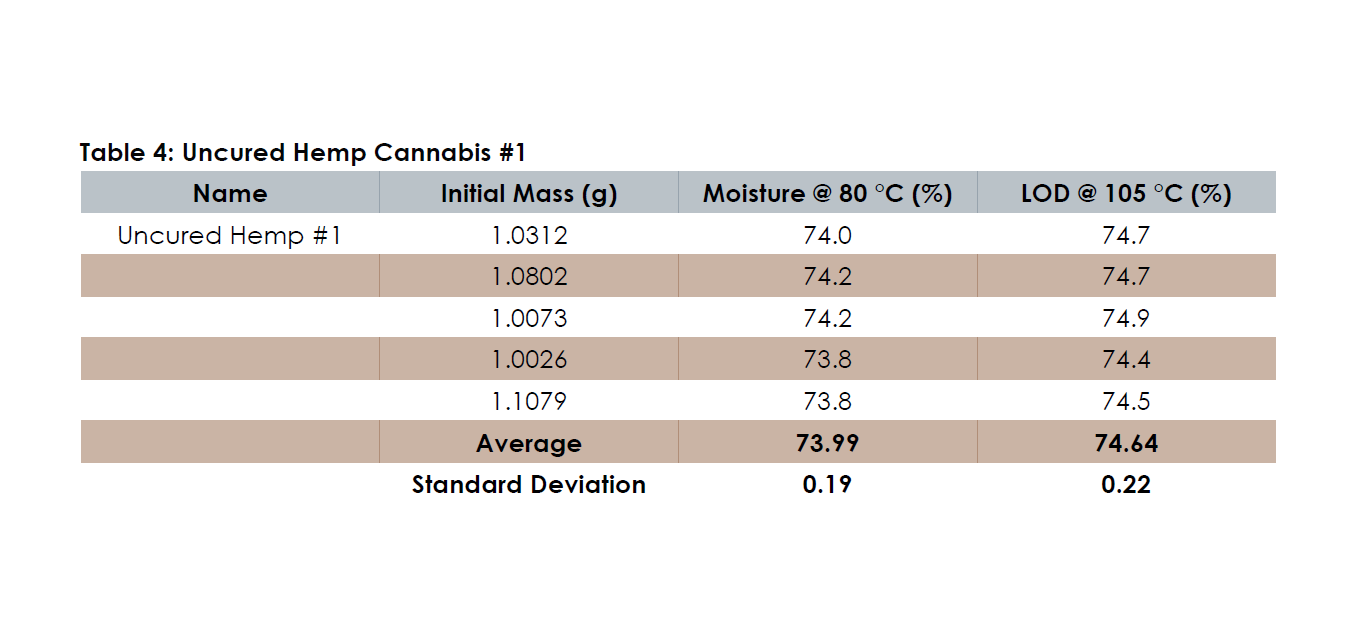
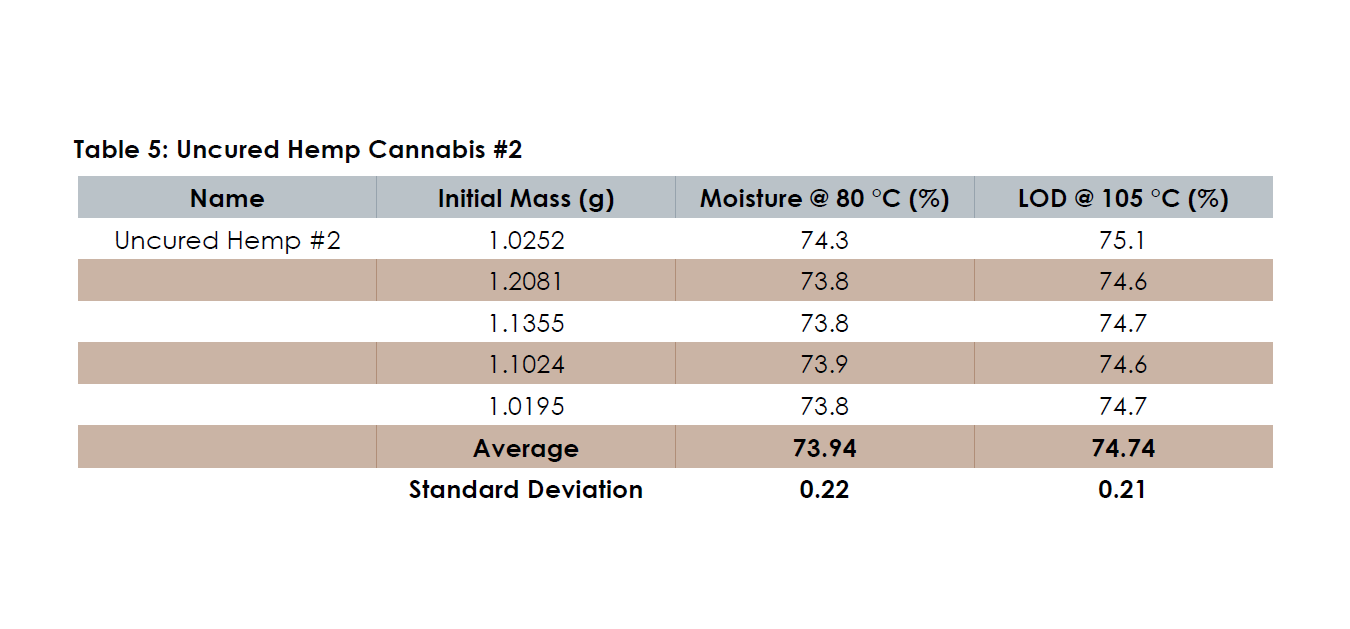
Conclusions
- Utilizing published information and results obtained from the analysis of cannabis on the LECO RC612, precise measurements of moisture content in cannabis flower and plant tissue can be obtained by the LECO TGM800.
- Analysis of cannabis above 80°C results in the evolution and decomposition of VOCs contributing to elevated moisture readings, as shown. Importantly, an elevated moisture determination will lead to artificially elevated values for various downstream chemical analyses such as THC content. This can potentially have regulatory and legal consequences for producers.
- Utilizing the multiplex capabilities and mass constancy option on the LECO TGM800, analysis time can be reduced from the USP Monograph 921 protocol of five hours, to approximately two hours.
Summary
- The TGM800 instrument provides a high-precision, automated solution for moisture determination by replacing the slow, laborious, traditional loss-on-drying technique with an automated primary method.
- The TGM800 benefits from number of time-saving features, such as the ability to automatically measure up to 16 samples at a time with optional drying time end point recognition, and intuitive touch-screen software with flexible method settings.
- Beyond cannabis, the TGM800 is applicable to a wide variety of sample matrices including food, feeds, milled products, and agricultural materials, making it a versatile solution for many laboratories.
- The LECO TMG800 and RC612 instruments used in this study provide the superior performance needed for in-depth investigations of temperature and VOC evolution in cannabis moisture determination.
- Plant Analysis Handbook III, G. Bryson, H. Mills, D. Sasseville, J. Jones Jr, A. Barker, Micro-Macro Publishing, Inc, 2014.
Click here for more information on the LECO TGM800
Click here for more information on the LECO RC612
View LECO listings on LabX.com
